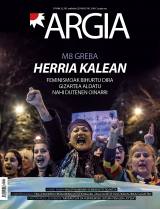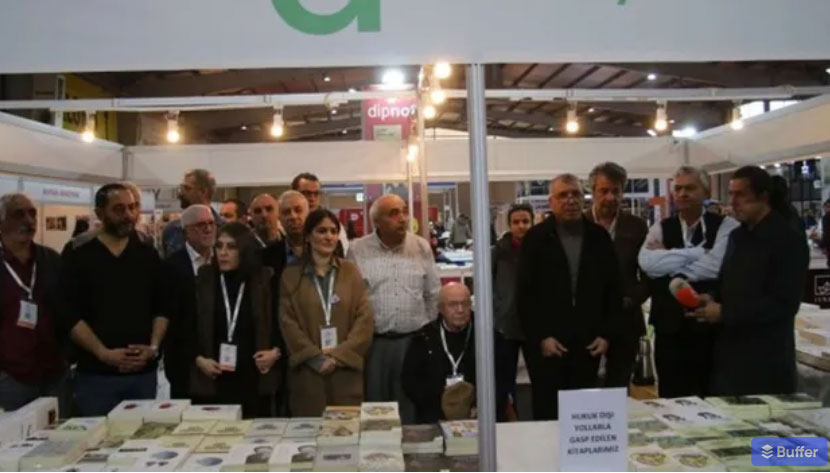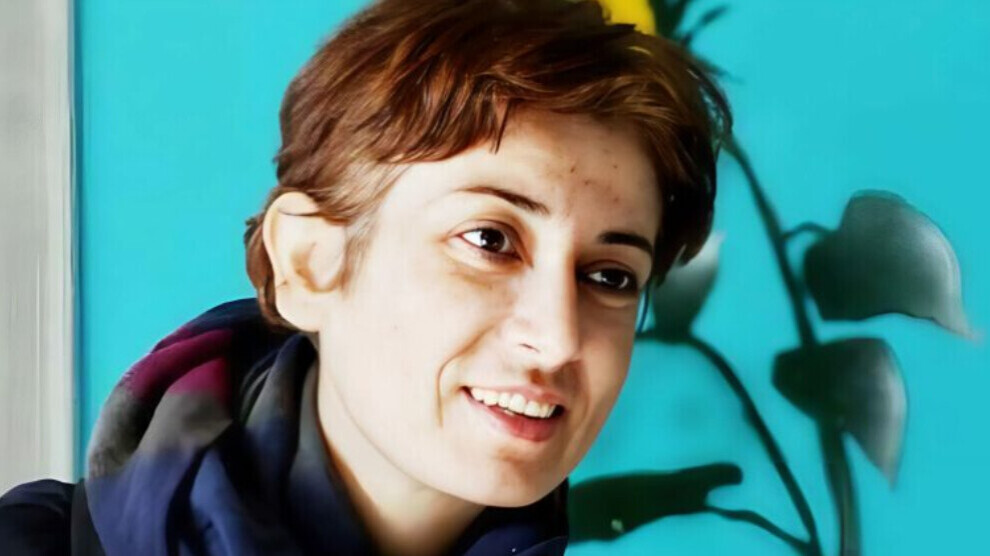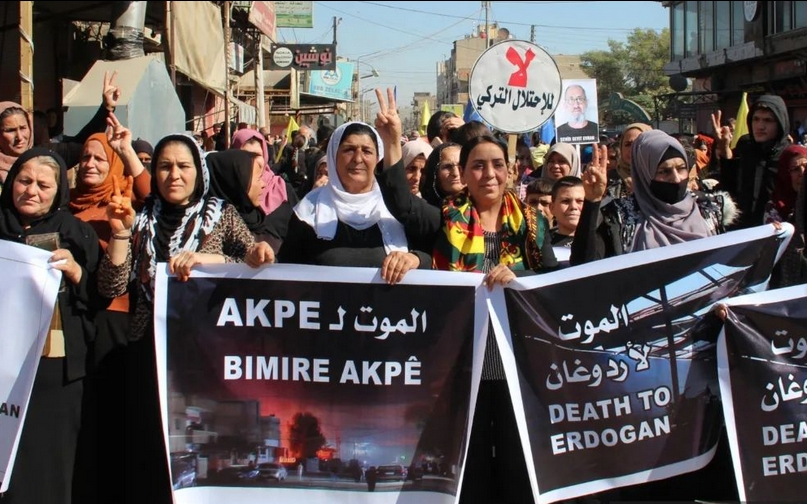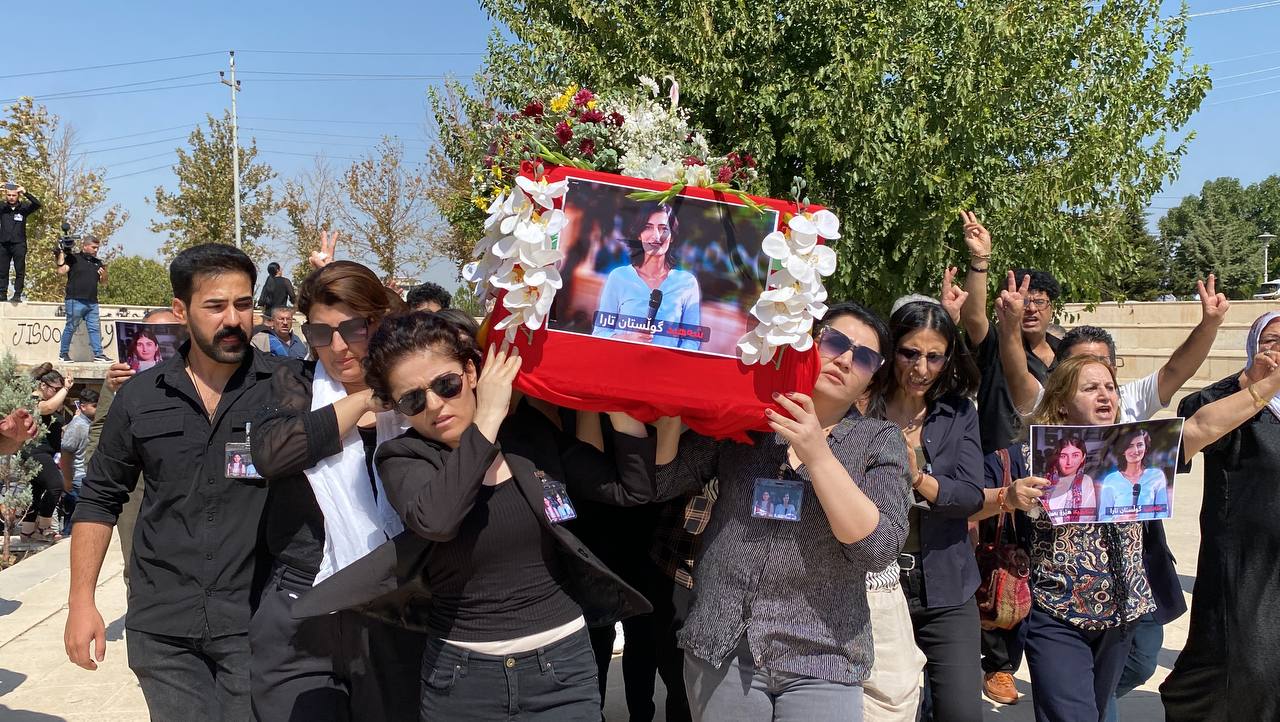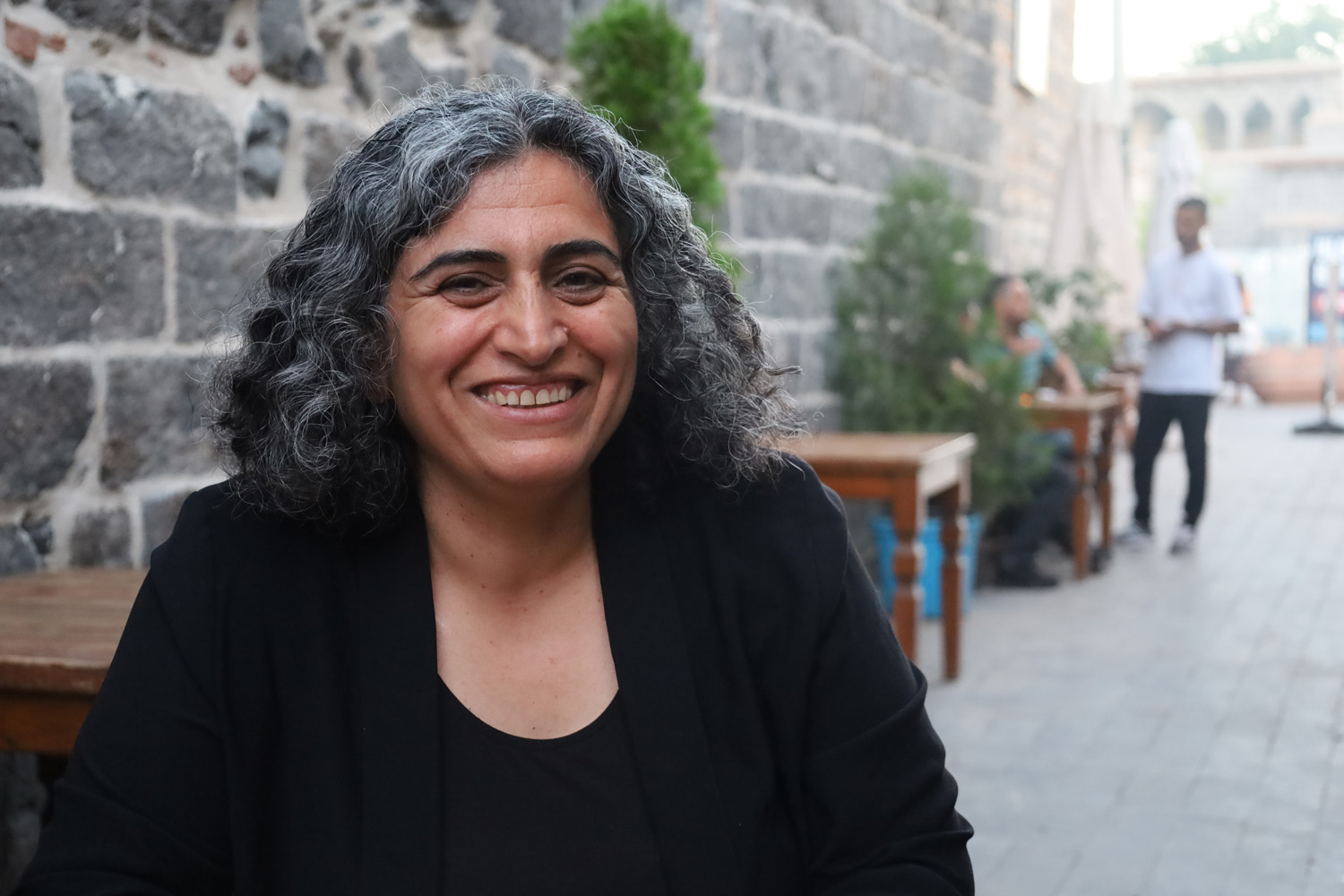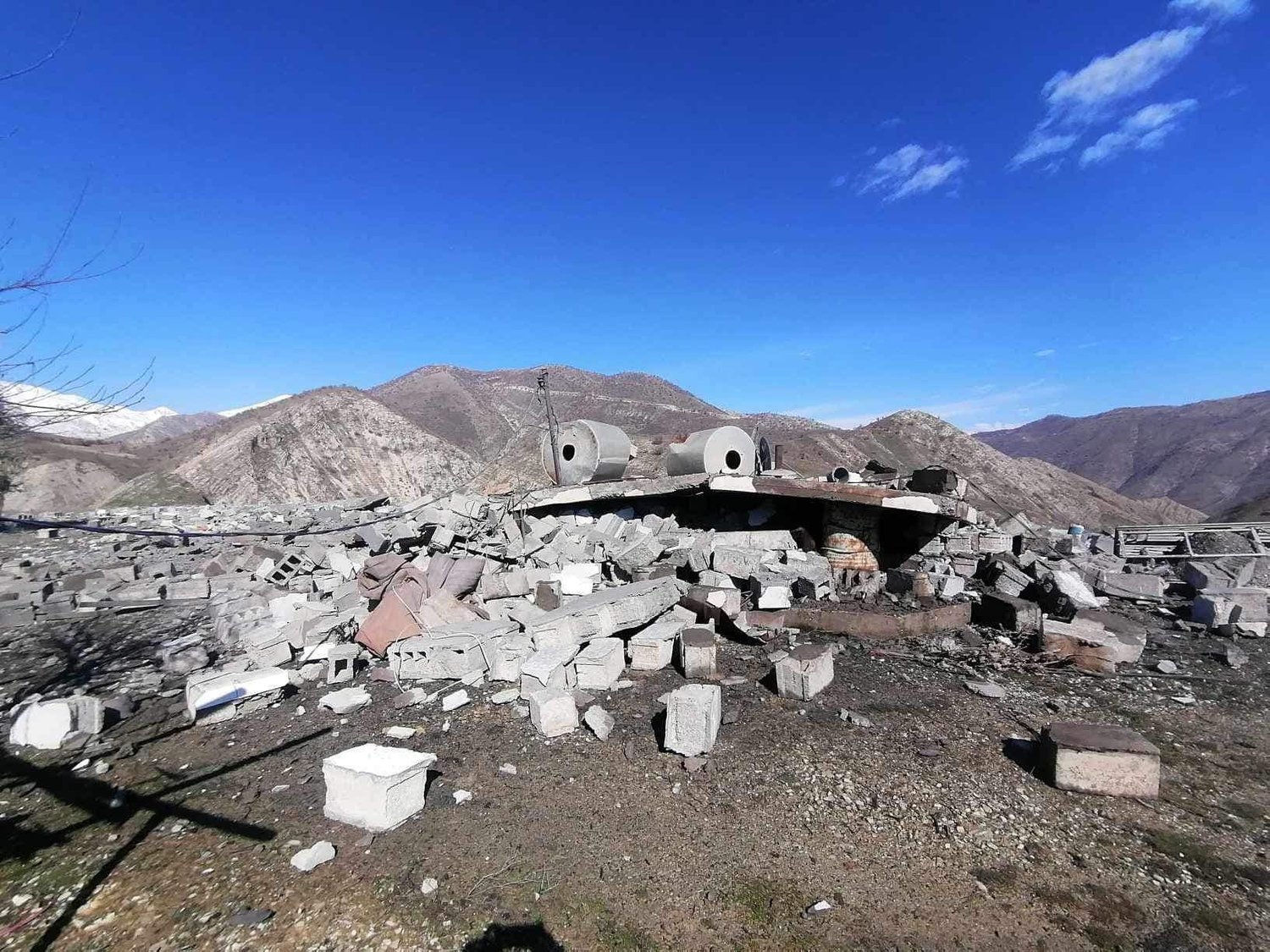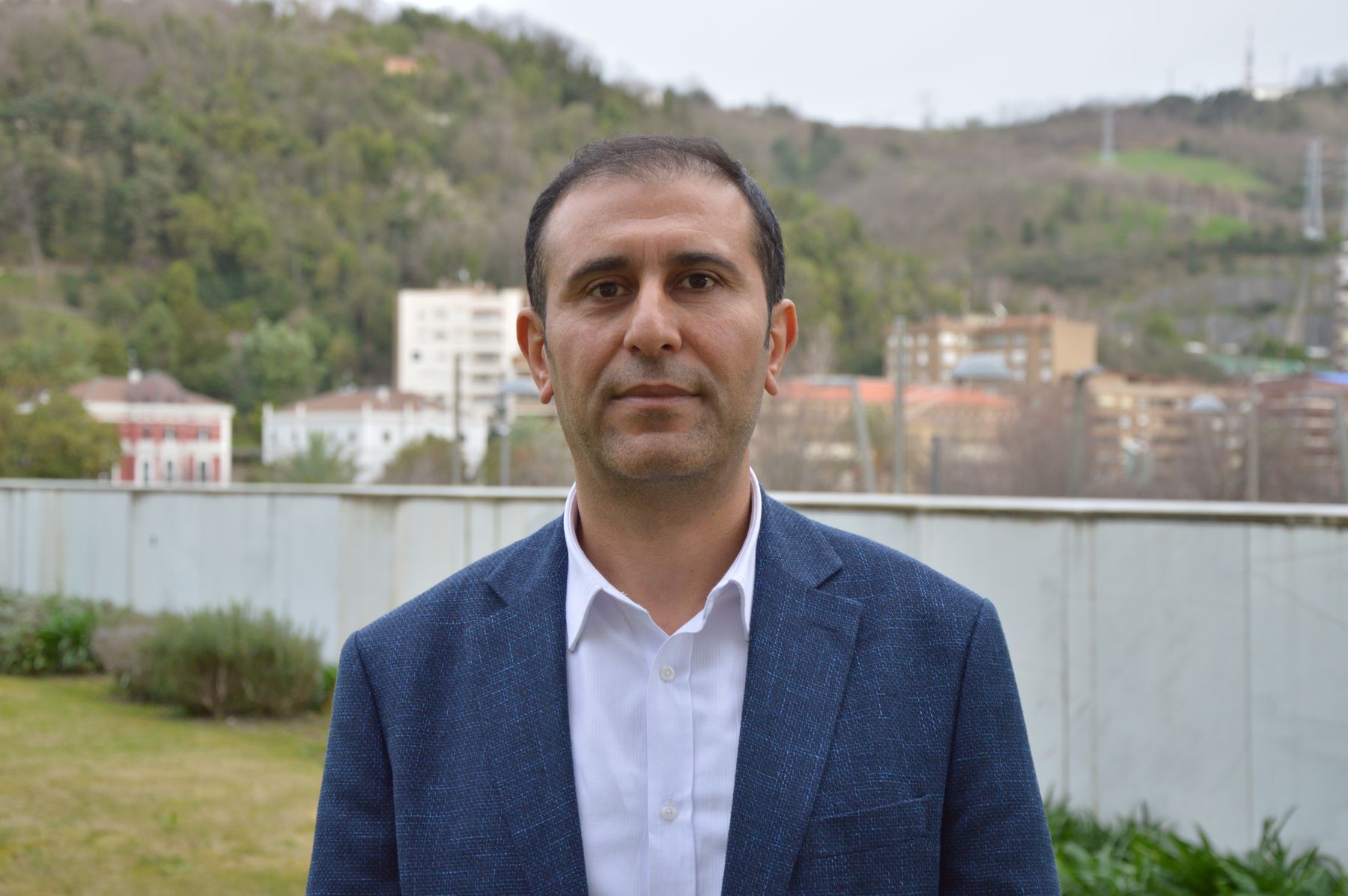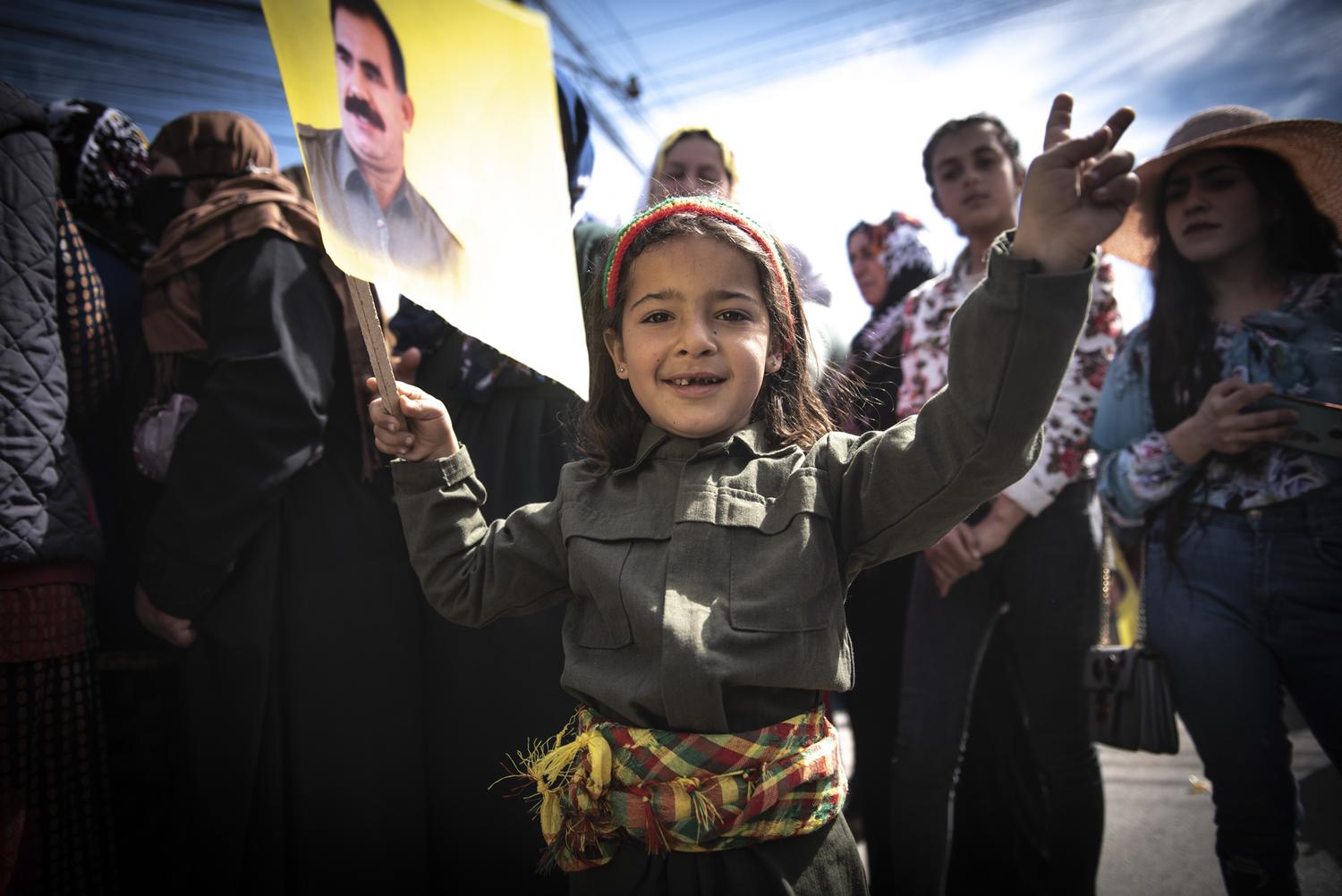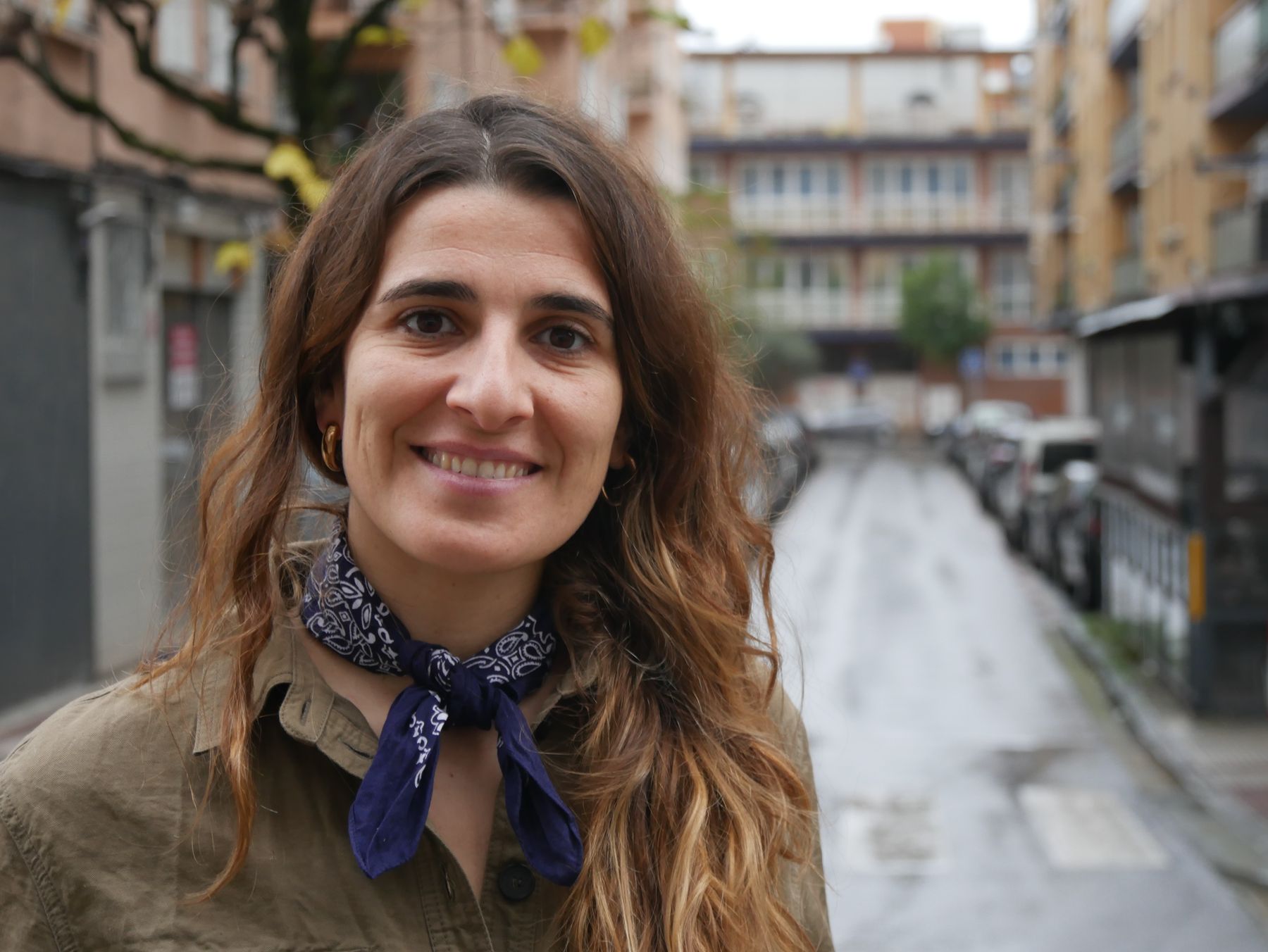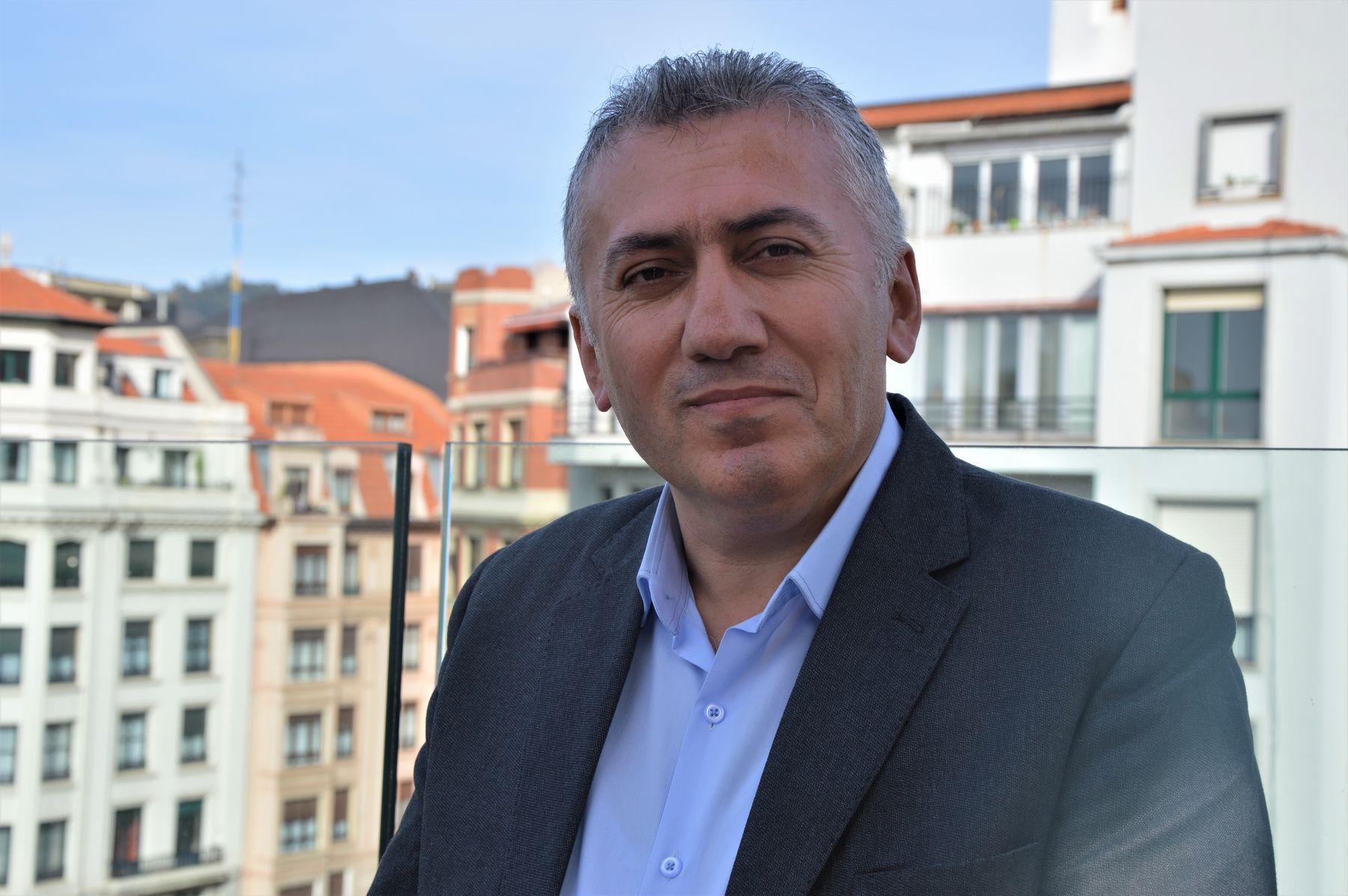Six days for Europe with the pain and joy of the Kurdish people
- Between 8 and 17 February, the Kurdistan Liberation Movement carried out a tour of the heart of Europe to denounce the situation of the isolated prisoner Abdullah Öcallan and the Turkish offensive in Afrín, in the autonomous Kurdish canton of Syria. Some Basques and Basques took part in the initiative and we had the opportunity to show our solidarity and to learn more about the identity of the Kurdish people.
Although four internationalists from Euskal Herria were from the very beginning, we arrived on Day 12 at the Kurdish People’s Freedom March. In the evening we landed in Frankfurt (Germany) and we were soon received two Kurds. One of them, a man with mustache and furious smoker, told us that he had been in the guerrilla for sixteen years. By the stupid way I was driving, I was absolutely compelling.
Having crossed Switzerland’s borders and controls late in the night, we stopped in a small town. We first entered the house of two of the Kurdish burkis and tried out what compulsory hospitality is in the Middle East. Although they only lasted two hours to rest, the Kurds stubbornly and we took breakfast at 3 p.m. After 40 minutes of sleep, our drivers headed to Germany. After two hours we were on the finish line.
The joy of the Kurdish
people In the end, we joined the march. The first thing that surprised us was to see the Kurds dancing and singing despite being at war – the army and the jihadist groups in Turkey are committing huge massacres in Africa. What’s more, every time a 30-second break occurred, we saw the Kurds tied hand in hand, singing, screaming choruses or building castellers. The celebrations were only held on 15 February, on the anniversary of the arrest of its leader, Abdullah Öcallan. That day they don't dance and many are fasting.
On the sidelines, it seems that after years of oppression, violence and war in Turkey, Syria, Iraq and Iran, the Kurds joyfully face the tragedy. Although they were the noisiest group, the Kurds were not alone. With the young people of the PYD diaspora, the Syrian hegemonic Kurdish party, we were more than 100 internationalists, as well as the resistors of the Turkish communist party MLKP. In total, we were about 500 people and, following the Kurdish philosophy, behind the banner were women, to put men in the end.

We were walking through the column made up
of two rows; the contrast between our noise, the quiet landscape and the Porsche and expensive cars was evident. The green symbols of the YPG groups for self-defense of the Kurds and YPJ for self-defense of women broke local harmony. The slogans heard were broadcast in several languages: Kurdish, French, Spanish, Norwegian... All the cries demanded the freedom of the PKK founder, Abdullah Öcallan, and praised Afrín’s resistance against the invasion of Turks and Islamists.
The democratic confederalism
in Internazionaliston was common to hear Spanish, as most belonged to the Spanish State; Catalans, Madrid, Aragonese, Canaries, Basques... But every night, at the end of the walk, when they arrived at the shelter, the tower of Babel was lit.
The Kurds wanted the criteria of democratic confederalism to be internalized and to do so they distributed us in the bathrooms. As in the Middle East, we all had to work together, but instead of Assyrians, Arabs, Circasians or Iazidis, we debated it by activists from different European cultures and backgrounds: Italians, Swedes, Germans ... The objective was to coordinate services, organize political and everyday tasks and channel criticism and self-criticism. In other words, to live the curious fusion of Maoism and libertarian socialism that the Kurds are implementing.
Our house was during the early days the Cold War bunker. In fact, the initial intention was to cross France and Germany, but after the clashes with Turks last year and the political situation was just around the corner, the organizers turned to the neutral people to ensure security. In any event, a group of Kurds was responsible for supporting efforts to protect the fascists from possible attacks by the Turks.
After the
first few days in the Alps, on 15 and 16 February we approached Geneva. There we met PYD President Saleh Muslim. He was heading to United Nations headquarters to present a report on Africa, where the Turks and jihadists have killed over 200 civilians in bombings. He appeared at a press conference, while several volunteers were forming a human fence; Turkey has offered EUR 1 million for the Muslim run, which has been arrested. 18 was arrested in Prague on the orders of the Turks and 27 was released again by the Czech court.
We are also protesting at the United Nations in Geneva to denounce the organisation’s neglect in the case of the massacres in Afrín and that Germany, by selling arms to Turkey, is doing a great deal of business at the expense of war.
Then we went to a city film and took part in a live television show. Dilek spoke in Öcalla, a parliamentarian of the Kurdish party HDP in Turkey and the nephew of Abdullah Öcallan. He stressed that Turkey’s intention is to put an end to all the progress of the Kurdish movement in Afrín (feminism, social economy, interculturality) and to put an end to the freedom achieved through jihadists, such as Koban. The room was filled with emotion by the resistance, and every time the shattered Turkish tanks were represented, there was a loud flurry. The atmosphere was very busy, and all of a sudden, young Kurds from the Syrian PYD decided to leave the room. We Europeans did not understand anything, but, as they later explained to us, the struggle for language is everywhere. In fact, most Kurds live in Turkey. The truth is that we were delighted to see that the Kurds are also engaged in debates that are passionate about language or political forms.
Geneva and Strasbourg On
16 February we returned to the United Nations building to reproach us for their passivity. In that case, we had Saleh Muslim back with us. At the end of the act, we went up to the buses to go to Strasbourg. There our first stop was the Kurdish Culture Centre; the walls were filled with photographs of murdered militants. That night we slept with the Kurdish families. In our case, the two children of the family were currently in Kurdistan, where one of them tried to spend that day from Iraq to Afrín to practice as a nurse.
Demonstration On
Saturday the mobilisation in Strasbourg began in the rain and snow. The internationalists were in the lead of a wave of people to denounce the criminal aggression that Turkish President Recep Tayyip Erdogan had ordered against the Kurdish canton Afrin in Syria and to demand the freedom of Abdullah Öcallan. Öcallan, who two years ago lives in complete isolation in the prison on the island of Imrali, cannot talk to him, his relatives or his relatives.
We made a long journey and in all the streets there were police of Gendarmerie and CRS, for fear of jihadist aggression. Little by little we reached the end of the demonstration and all delegations took the floor. The Basques are calling for a peaceful political solution, but as long as this does not happen we are celebrating the resistance of the Kurdish people, especially of the fighting women, such as Sakine Kansiz, Arin Mirkan, Barin Kobani or Avesta Xabur, who have died in the battle of Afrín.
Given the lack of improvement in time, the festival that was held after the event ended earlier. It seemed that the time had come to go home to everyone, but we were awaiting the last surprise.
On the trip to
Brussels, the Raqqa fighter met with the Basque representatives a young man from the Spanish state. As we talked to him, we discovered that he had been in Raqqa Syria against the Islamic State. He was not an adventurer or a military man, but a historian and a militant on the left. Days before I had lost his great friend fighting Turkey: Olivier François Jean Le Clainche ‘Kendal’. Breton was an independentist, he knew Euskera, and after fighting with the Kurds in Syria, he went to defend Afrín and there he was killed in early February. When asked to the militia who accompanied us, he was clear that the solution to Syria would come from the hand of the agreement between the Kurds and Bashar Al Assad. It doubted, however, that Russia, Iran, Turkey or the United States would allow it, and that the regime has understood that the situation is not going to return to the status quo before the war.
Urtarrilaren 20an Turkiako armadak eta hainbat talde yihadistek Afrin Siriako kantoi kurdu autonomoa inbaditzeari ekin zioten Errusiaren baimenarekin. Geroztik 200 zibil baino gehiago hil dituzte bonbardaketetan eta ehunka borrokalari zendu dira bi aldeetan.
Bataila hasi zen Estatu Islamikoaren eta Siriako gobernuaren aurkako oposizioaren porrota bistakoa zenean. Orduan, zergatik piztu da berriro gudaren sugarra eta, gainera, kurduen aurka?
Siriako Gerra munduko potentzien eta Ekialdeko herrialdeen xake partida odoltsu bilakatu da, eta egoera horretan estaturik gabeko herriak dira oro har galtzaile, kurduak esaterako. Zentzu horretan, kurduek bere biziraupen politikoa bermatzeko hirugarren bidea abiatu zuten Sirian; Konfederalismo Demokratikoaren alde egin zuten, lerrokatu gabe Assadekin, ezta oposizioarekin ere. Horrez gain, bi potentzia handiekin akordioak lortu zituzten 2016an; Ameriketako Estatu Batuekin Eufrates ibaiaren ekialdean Estatu Islamikoa garaitzeko, eta errusiarrekin mendebaldean, Afringo kantoi isolatuan inbasio turkiarra ekiditeko.
Hortaz, zergatik okertu da dena orain? Alde batetik, kurduek bere eragin eremua asko zabaldu dute Siriako ekialdean (Mambij, Raqqa, Shadadi, Deir Ez Zour) eta, dagoeneko, borrokalari gehienak arabiarrak dira Siriako Indar Demokratikoetan (kurduek lideratzen duten aliantzan). Litekeena da AEBek lurralde hori guztia baliatu nahi izatea, ahal duten neurrian, Iran eta Errusiaren eragina murrizteko. AEBek kurduak babesteak izugarri larritu du Turkia, NATOn AEBek duten bazkide nagusia Ekialde Hurbilean. Horregatik, turkiarren lehentasuna bilakatu da kurduen aurka jotzea eta ez Bashar Al Assaden gobernuaren kontra.
Errusiaren estrategia
Turkiarren helburu aldaketa inork baino hobeto kudeatu dute errusiarrek. Hasteko, Alepoko batailan turkiarrekin adostu zuten indar yihadistak hiri garrantzitsu horretatik mugitzea Siriako iparraldera, kantoi kurduen lotura saihesteko. Kasu horretan lehenengo aldiz ireki zion Errusiak aire eremua Turkiari. Behin lotura eragotzi eta gero, errusiarrek kurduekin akordioa erdietsi zuten Afringo kantoia defendatzeko. Horrela, guztiek irekita utzi zuten aukera etorkizunean akordio horiek handitzeko. Geroztik, Errusiak harremanak sakondu ditu Turkiarekin (aire defentsarako misilak saldu dizkio eta, gainera, gas hodia erabiliko du bertan, Ukrainaren gaineko mendekotasuna leuntzeko) eta, ikusita kurduek ez ziotela Bashar Al Assadi Afringo kontrol politiko eta militarra ematen, Turkiari erraztasun osoak eman dizkio kurduen aurka jotzeko.
Turkish helicopters and fighter aircraft cover the sky in the Kurdish area in northern Iraq. The Turkish Air Force has bombed 381 sites in the major military operation in recent weeks in the Kurdistan Autonomous Region (DRC). The Turkish Ministry of Defence has stated that "the... [+]
Urtzi Urrutikoetxea nazioarteko kazetariarekin mintzatu gara Radio Kobanen, iaz idatzitako Kurdistan-Argi bat ekialde hurbilean liburuari buruz. Testuak azken urteetako gertakizunei erreparatzen die, eta atzerago ere begiratzen du herri kurduaren egoera politikoa eta... [+]









